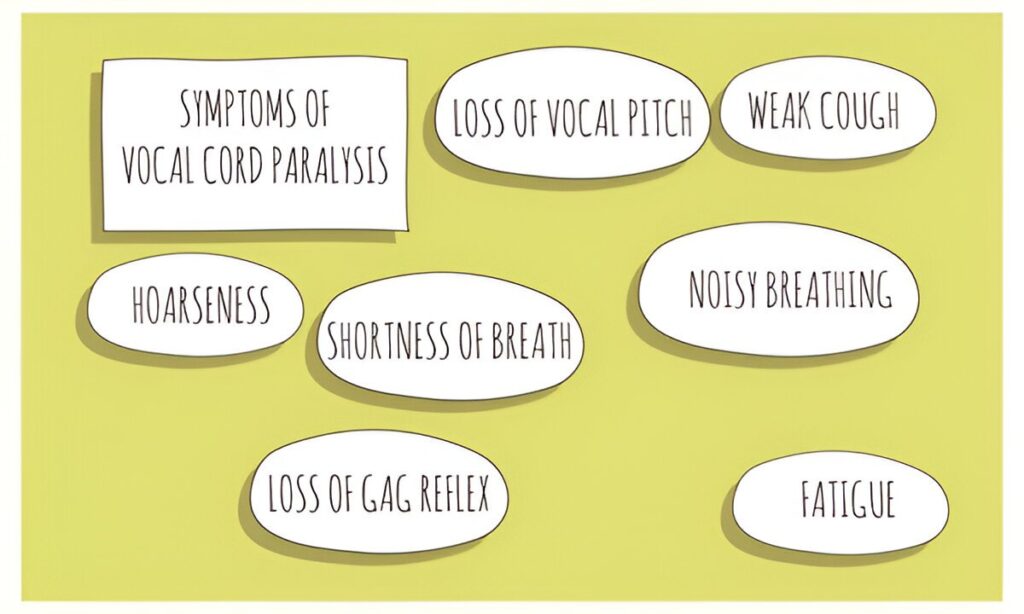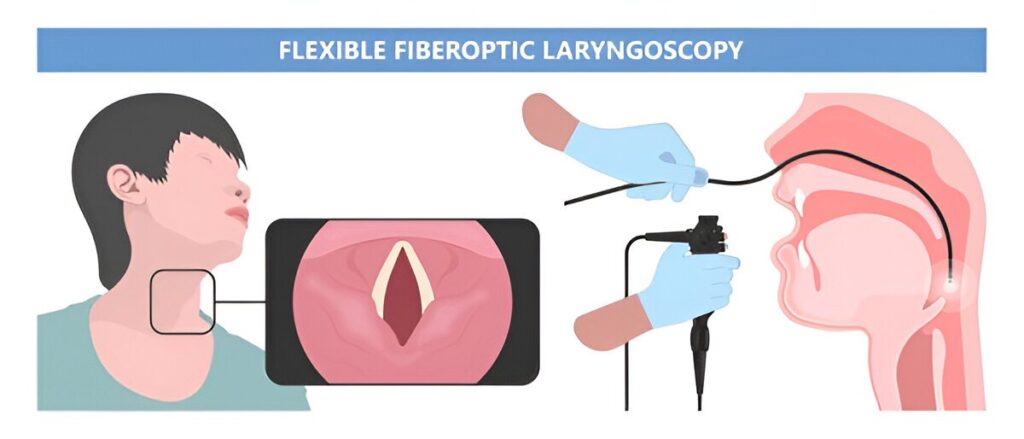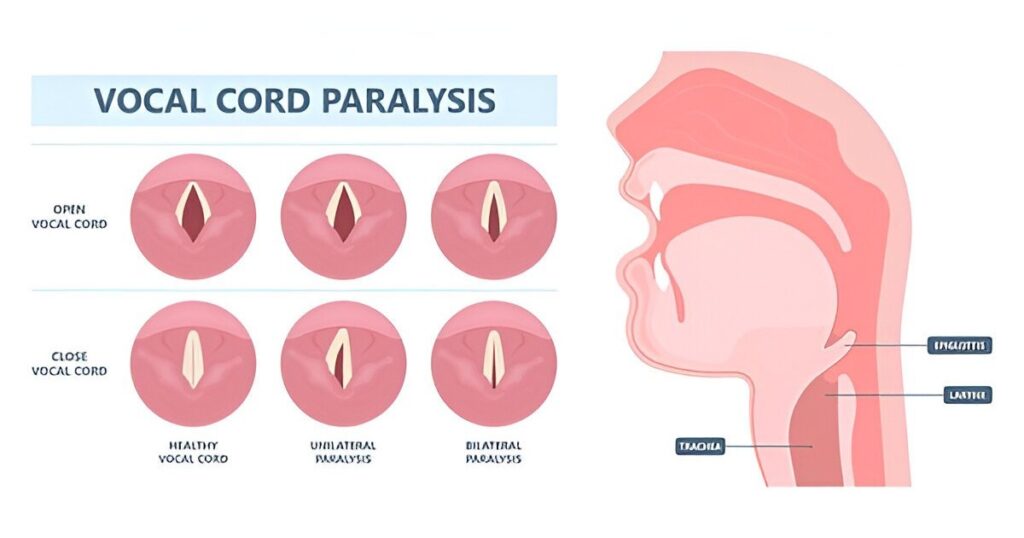Vocal cord paralysis is a condition where one or both vocal cords do not move as they should. Vocal cords are the two muscle bands inside the voice box or larynx located atop the windpipe. These open when we breathe so that air can pass through and close when we swallow to prevent food and drink from slipping into our windpipe. On the other hand, when we speak, our vocal cords touch. Our lungs send air through them thereby causing them to vibrate and make sounds.
When a person suffers from vocal cord paralysis, the nerve damage prevents the muscles in the vocal cords from opening and closing properly. This makes it difficult for the person to speak, swallow and even breathe as all these functions depend on the movement of vocal cords.
Causes of Vocal Cord Paralysis
A wide range of conditions can damage the nerves that control vocal cord movement. These may include the following:
Infections: Infections like COVID-19, Herpes and Lyme disease can lead to inflammation that damages the nerves controlling the vocal cord movement.
Autoimmune Diseases: Different diseases that interfere with the manner in which nerves communicate with muscles may lead to vocal cord paralysis.
Injury: Trauma to the chest, neck and head can also cause nerve damage that may lead to vocal cord paralysis.
Neurological Diseases: Conditions involving nerve damage and deterioration such as stroke, Parkinson’s disease and multiple sclerosis may also affect the nerves that control our vocal cords.
Poisonous Substances: Toxins such as arsenic, lead and mercury can also cause significant harm to the nerve tissue.
Surgery: Surgeries in the head and neck, such as parathyroid surgery, thyroid gland removal, cervical spine surgery and heart surgery may result in complications such as nerve injury. Extra laryngeal causes of vocal cord paralysis. For example, using breathing tubes during surgery may also damage nerves present inside the voice box.
Tumors: Non-cancerous as well as cancerous tumors may push on the nerves inside the voice box, thereby leading to damage. Both thyroid nodules and thyroid cancer can damage these nerves.
In addition to these, the vocal cord may also get paralyzed when a person suffers from a severe cold or an upper respiratory infection.
Symptoms of Vocal Cord Paralysis

The symptoms related to vocal cord paralysis usually depend on the extent and severity of the paralysis as well as the position of the vocal cords in relation to each other. A study of incidence and etiopathology of vocal cord paralysis. Some of the more common symptoms may include the following:
- Changes in the vocal pitch
- Changes in the vocal volume
- A hoarse, scratchy and weak voice
- Choking while swallowing
- Inability to clear throat while coughing
- Trouble swallowing
- Noising breathing
- Shortness of breath
When a person suffers from vocal cord paralysis, he may not be able to feel the sensations from the vocal cord directly. However, he will feel the symptoms that result from paralyzed vocal cords.
The initial sensation may include a general feeling of fatigue wherein the person will feel exhausted. He may also feel like choking if the food or drinks slip into the windpipe. In many cases, people suffering from vocal cord paralysis may feel like they continuously have mucus inside their throats that are not cleared easily.
Diagnosis of Vocal Cord Paralysis
When a person suffers from vocal cord paralysis, doctors would usually ask about his health history and symptoms. For confirming a diagnosis, the doctor may recommend the following:
Imaging studies
A CT Scan or an MRI helps to show detailed images of the thyroid gland, voice box, brain, vocal cords, throat and chest. These can also help to detect unnatural growths that may damage the nerves in the voice box. Healthcare providers may also request an X-ray of the patient’s esophagus or chest.
Laryngoscopy

Laryngoscopy permits medical practitioners to directly observe the vocal cords and voice box of the patient. Through the insertion of a slim and elongated tube known as a laryngoscope into the nostril, a person’s throat is examined.
This flexible tube is equipped with a camera that captures images of the vocal cords and voice box. The images captured by the camera are displayed on a monitor accessible to the healthcare provider.
Laryngeal electromyography
This examination gauges how the patient’s nerves manage the muscles within his voice box. Laryngeal electromyography: a proposal for guidelines of the European Laryngological Society. It assesses and records the electrical signals generated by these muscles.
Blood tests
If the healthcare provider suspects that the patient’s vocal cord paralysis might be due to an infection or an autoimmune disorder, they may request blood tests.
Treatment of Vocal Cord Paralysis
In cases of unilateral vocal cord paralysis, medical professionals often opt to postpone surgical interventions for around a year, allowing time for potential improvement in the condition. There are instances when the vocal cord is merely bruised or strained, necessitating a period for self-repair that can span several months.
A qualified speech-language pathologist specializing in voice care can provide voice therapy, which can prove quite effective in strengthening the patient’s voice when the issue is mild. A laryngologist might propose surgical solutions or vocal fold injections to address difficulties in voice, swallowing and breathing. The available options may include the following:
Vocal cord injection with a filler
Healthcare providers may introduce a filler material via a needle. Multiple safe filler materials are available today, and this filler serves to close the gap between the patient’s vocal cords.
Laryngeal framework surgery involving a voice box implant
An implant, often made of silicone, is positioned within the voice box. This implant stabilizes the paralyzed vocal cord, facilitating the closure of both vocal cords. Thyroplasty is an example of such a procedure.
Reinnervation surgery targeting nerves
In this surgical procedure, the healthcare provider employs a nerve that connects to other neck muscles and reattaches it to the nerve responsible for vocal cord movement. This procedure avoids causing issues with other neck muscles.
FAQs
What is the earliest symptom of vocal cord paralysis?
Some of the earliTo prevent vocal cord paralysis or reduce its risk, talk to your doctor to know if you have any illness or condition that increases your risk of this disease. These may include Parkinson’s disease, multiple sclerosis or a recent surgery on the chest or neck.est symptoms of vocal cord paralysis may include hoarseness, noisy breathing and a breathy quality to the voice.



